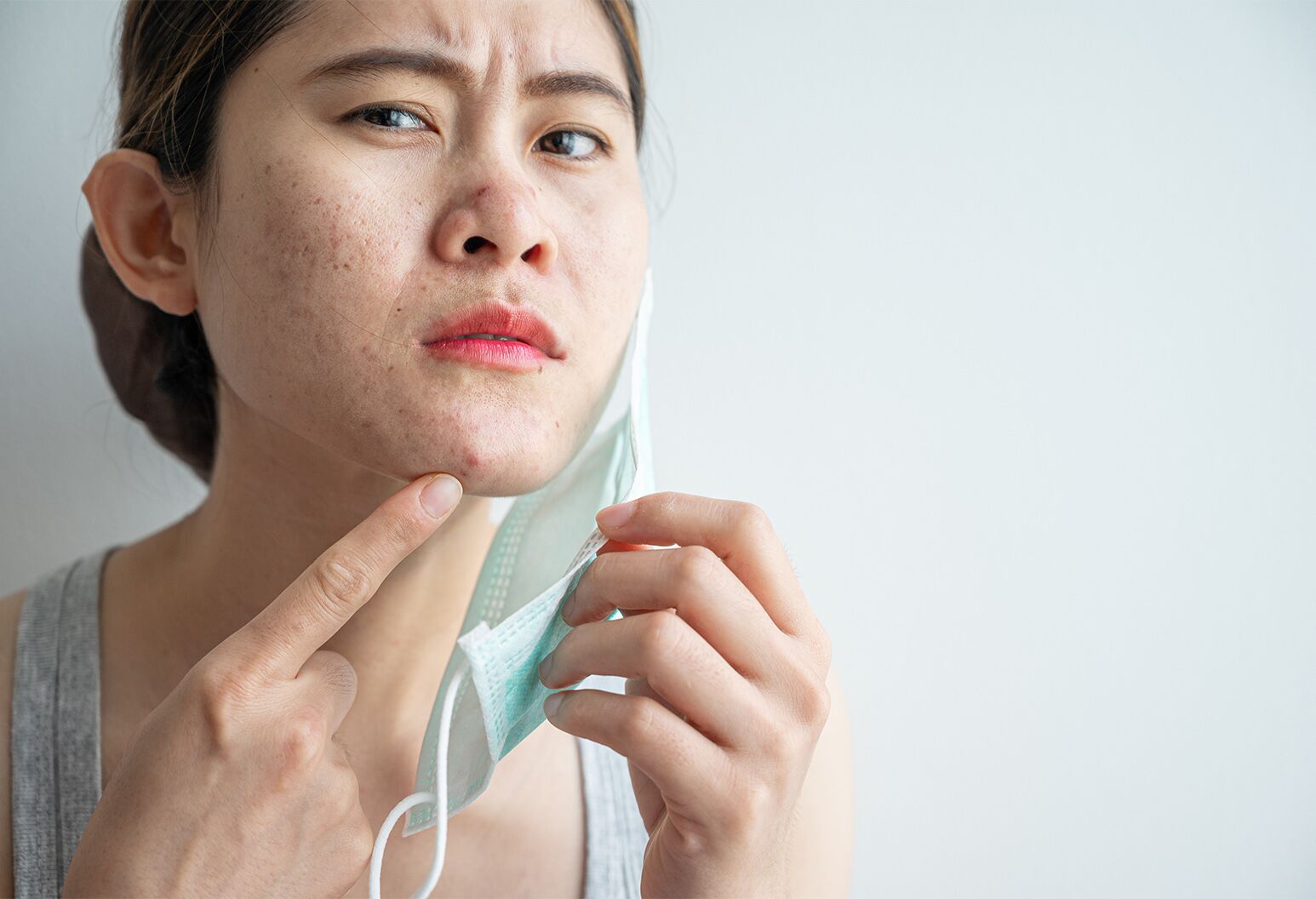skin health
The Risks Of Getting Plastic Surgery Overseas

Yes, mask acne is real. Here, our expert shares the simple steps you can take to banish blemishes caused by wearing a mask.
3 min read
I’ve been wearing a mask all year to protect myself from COVID-19, but I’ve started to notice some pesky pimples popping up where my mask covers my face. Blemishes are the last thing I want to have to worry about right now, though, so what can I do?
Sincerely,
“Pestered by Pimples”
Maskne, or mask acne, is on a lot of people’s minds—and faces—these days as we near almost a year of wearing protective masks. But, despite the term becoming more mainstream recently, maskne is actually not a new phenomenon. It’s the same type of acne a football player may get from helmet straps, or an actor or dancer who regularly wears thick makeup. This means we already know a great deal about mask acne and, fortunately, how to take care of it.
Maskne is caused by a buildup of dirt, oil, sweat, and dead skin cells, along with bacterial overgrowth that happens with prolonged use of a mask. If we’re getting technical, most maskne is a form of acne mechanica—caused by rubbing, squeezing, or pressing against the skin—that appears along the jaw, cheeks, nose, chin, and around the mouth. It can also be exacerbated by the weather, especially humid summer days.
Stress can also make it worse, and we all know there’s no shortage of stress these days.
But while mask-rubbing and stress seem unavoidable, there are a few simple ways to reduce the chances of maskne while still wearing your mask safely and properly. First, wearing the right mask is key, in both fit and fabric. Make sure it’s clean and fits snugly on your face. If a surgical mask is not available, I recommend using a soft, natural, breathable fabric such as 100% cotton, while avoiding synthetic fabrics like nylon, polyester, or rayon.
You may also need to adjust your daily skin care routine. Skip the makeup, and make sure you wash your face before putting your mask on and after taking it off. Switch to a gentle cleanser and oil-free moisturizer. You should also take care to wash your fabric masks with a fragrance-free, hypoallergenic detergent.
And finally, if at all possible, find a safe place to take a mask break.
If you’ve done all of the above and still find yourself dealing with stubborn maskne, the best course of action is to see a board-certified dermatologist for a thorough evaluation and an individualized treatment plan that works for you. Acne treatments can sometimes initially be irritating to the skin, which is why it’s important to find the perfect balance in your skin care regimen that won’t compound the irritation you’re already getting from the mask.
All in all, remember to practice good mask and face hygiene every day, use gentle fabrics and cleansers, and if you can’t seem to solve the issue on your own, make an appointment with a dermatologist to help you with a personalized plan.
With Emily Mathai
The Well is Northwell Health’s commitment to the future of health care. In this time of information overabundance, much of which is inaccurate, unhelpful, or even difficult to understand, Northwell Health is on a mission to make a difference as an honest, trusted, and caring partner. The site connects with consumers to provide them with personalized content that reduces their stress, makes them laugh, and ultimately feel more confident and capable on their healthcare journey.